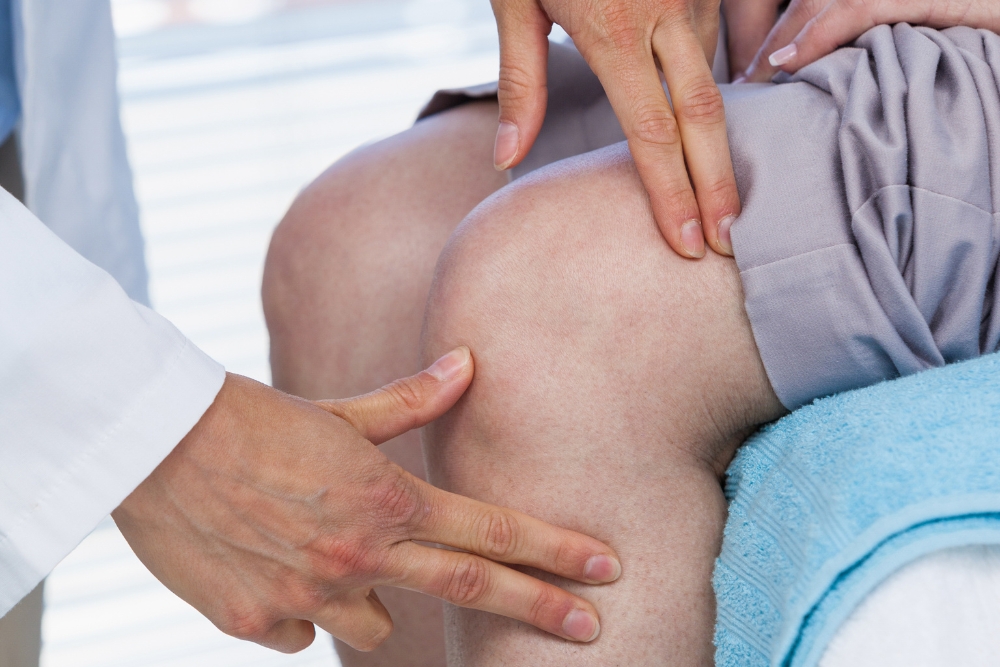How Knee Replacement Surgery Restores Mobility and Improves Life Quality
Living with chronic knee pain can limit your freedom and reduce your quality of life. Learn how modern knee replacement procedures are helping patients regain mobility, ease discomfort, and return to daily activities with more confidence and independence.

Signs It’s Time to Consider Knee Replacement
Determining the right time for knee replacement surgery requires careful evaluation of your symptoms and their impact on daily life. Persistent knee pain that interferes with sleep, walking, or basic activities often signals the need for surgical intervention. When conservative treatments like physical therapy, medications, and injections no longer provide adequate relief, replacement surgery becomes a viable option. Significant joint stiffness that limits your range of motion, particularly difficulty bending or straightening the knee, indicates advanced joint deterioration. Additionally, visible knee deformity, such as bow-legged or knock-kneed appearance, suggests structural damage that may benefit from surgical correction.
Benefits of Knee Replacement for Seniors
Senior adults experience particularly significant advantages from knee replacement surgery, as this demographic often faces the greatest mobility challenges. The procedure effectively eliminates chronic pain that has likely persisted for years, allowing seniors to reduce or eliminate pain medications and their associated side effects. Improved balance and stability following surgery reduce fall risks, a critical concern for older adults. Many seniors report renewed independence in daily activities, from grocery shopping to gardening, activities they may have abandoned due to knee pain. The psychological benefits are equally important, as reduced pain and increased mobility often lead to improved mood, better sleep patterns, and enhanced social engagement.
What to Expect After Knee Replacement Surgery
The post-surgical period follows a predictable timeline, though individual recovery rates vary based on overall health and commitment to rehabilitation. Immediately following surgery, you’ll spend one to three days in the hospital, where medical staff will monitor your progress and begin gentle movement exercises. Pain management protocols have evolved significantly, with multimodal approaches minimizing discomfort while promoting healing. Physical therapy typically begins within 24 hours of surgery, starting with simple flexion and extension exercises. Most patients use assistive devices like walkers or canes for the first few weeks, gradually transitioning to independent mobility as strength returns.
Recovery Tips to Regain Mobility Faster
Accelerating your recovery requires active participation in the rehabilitation process and adherence to medical guidelines. Consistent physical therapy attendance is crucial, as these sessions strengthen surrounding muscles and restore joint flexibility. Home exercises between therapy sessions maintain progress and prevent stiffness. Ice application helps control swelling, while elevation of the leg when resting promotes proper circulation. Maintaining a healthy diet rich in protein supports tissue healing, while staying hydrated aids in recovery processes. Following weight-bearing restrictions protects the surgical site during initial healing phases. Gradual activity increases, such as short walks that progressively lengthen, build endurance without overexertion.
How Knee Surgery Improves Quality of Life
The transformation following successful knee replacement extends far beyond pain relief, encompassing multiple aspects of daily living. Physical improvements include restored ability to participate in recreational activities, from swimming to cycling, that were previously impossible. Sleep quality dramatically improves when chronic pain no longer interrupts rest cycles. Many patients report increased energy levels, as they’re no longer expending effort to compensate for knee dysfunction. Social benefits emerge as individuals regain confidence in their mobility, leading to increased participation in family gatherings, travel, and community activities. Professional life may also improve, particularly for those whose work involves physical demands.
Cost Considerations and Provider Options
Knee replacement surgery costs vary significantly depending on geographic location, hospital choice, and insurance coverage. Total knee replacement typically ranges from $30,000 to $70,000, with partial replacements generally costing 20-30% less. Insurance coverage varies, but Medicare and most private insurers cover medically necessary knee replacements. Leading orthopedic centers across the country offer specialized knee replacement programs with varying approaches and pricing structures.
| Hospital System | Location | Average Cost Range | Specialized Programs |
|---|---|---|---|
| Mayo Clinic | Multiple States | $45,000-$65,000 | Rapid Recovery Protocol |
| Cleveland Clinic | Ohio/Florida | $35,000-$55,000 | Same-Day Discharge Options |
| Hospital for Special Surgery | New York | $50,000-$75,000 | Minimally Invasive Techniques |
| Scripps Health | California | $40,000-$60,000 | Robotic-Assisted Surgery |
Prices, rates, or cost estimates mentioned in this article are based on the latest available information but may change over time. Independent research is advised before making financial decisions.
Knee replacement surgery represents a significant investment in your long-term health and quality of life. The combination of pain relief, restored mobility, and renewed independence makes this procedure one of the most successful interventions in modern medicine. While the recovery process requires dedication and patience, the overwhelming majority of patients report satisfaction with their decision to undergo knee replacement. As surgical techniques continue advancing and recovery protocols improve, the benefits of knee replacement surgery will likely become even more pronounced, offering hope to millions suffering from debilitating knee conditions.
This article is for informational purposes only and should not be considered medical advice. Please consult a qualified healthcare professional for personalized guidance and treatment.




